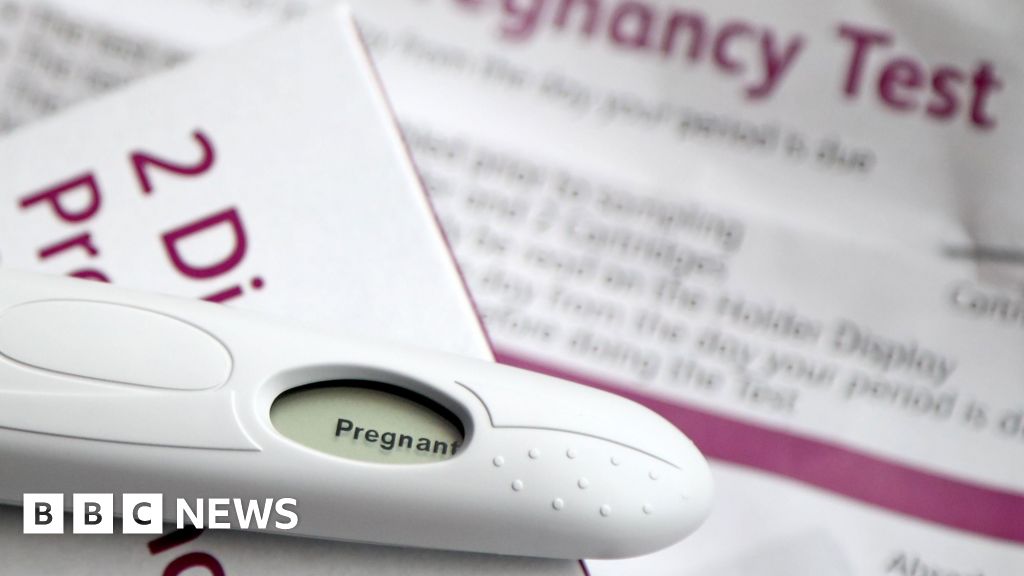ARTICLE AD BOX
 Image source, Pauline Duddy
Image source, Pauline Duddy
Jasmin Duddy was just 21 when she was found unresponsive at a house in the Galliagh area of Derry
By Michael McBride & David Wilson
BBC News NI
A Londonderry mother whose daughter died in February has warned young people about the dangers of abusing the prescription drug, pregabalin.
Jasmin Duddy was just 21 years old when she was found unresponsive at a house in Galliagh in the city.
Her mother Pauline Duddy said a post-mortem examination later revealed Jasmin had pregabalin in her system.
The police in Derry have also said they are attempting to locate a batch of extra-strength pregabalin tablets.
The drug is normally used to treat epilepsy and anxiety, according to the NHS.
Ms Duddy has called for tougher sentences on drug dealers and said more families will be left heartbroken unless more is done to tackle drug addiction.
Image source, Pauline Duddy
Image caption,Jasmin Duddy had been trying to overcome her addiction issues at Woodlea House at the Gransha Hospital in Derry
Ms Duddy previously told the Derry Journal that her daughter had "the biggest heart and would have done anything for anyone".
Speaking to BBC News NI, she said her daughter had been attempting to overcome her addiction issues and was receiving treatment at Woodlea House at Gransha Hospital.
Ms Duddy said that on 1 February she received a call from her daughter, and knew by the sound of her voice that she was intoxicated.
"When the phone call ended, I texted her and said please sober up because I knew she had taken something. She then replied back saying: 'Mum, I'm trying.'
'We are the families left behind'
"So at 4 o'clock in the morning I was asleep and then there was police at the door and they said they wanted to come in to discuss a sensitive matter and they told me that my daughter was found deceased.
"I don't understand why that day - that's the question that keeps going round my mind - why that day did she decide to put those tablets in her mouth," she added.
"She was off all the tablets, she was doing really well, and I don't know what changed on the 1st February to make her put tablets into her mouth. That will never be answered."
Ms Duddy said she only received the post-mortem examination results a few weeks back, where it was revealed she had pregabalin in her system.
"It has left the whole family devastated and there's a lot more families going through the exact same at the minute - we are the families left behind."
Image source, Pauline Duddy
Image caption,Pauline Duddy said Jasmin had the biggest heart and would have done anything for anyone
Ms Duddy believes the drug problem in the north west is getting worse and said more needs to be done to tackle it.
"You can get drugs quicker than you can get chocolate out of the shop," she said.
"It's getting sold under your eyes, it's getting passed under your eyes and it's just horrific.
"It is all vulnerable, naive young people who are being preyed on."
A GP has said pregabalin when prescribed therapeutically and taken under medical supervision can be "a very safe drug" but stressed it "can be dangerous when used as a recreational medication".
Dr Joe McEvoy, who works with people experiencing addiction issues, said: "It is a very dangerous drug when used in the wrong doses or for the wrong person or when it is mixed with other medication".
He said anyone thinking they are buying pregabalin on the street or from the internet can not be sure what they are getting.
The Derry GP said the risk is further heightened by poly-drug use.
"The problem is when it is mixed with other medications or alcohol, you can get it behaving in very unpredictable ways," he said.
Ms Duddy said sentences currently being handed down to convicted drug dealers are not long enough - she believes longer sentences would reduce the risk of individuals reoffending.
"Drug dealers should be getting years and years in prison because some are coming out and reoffending, doing the exact same thing again.
"If they do a long stretch in prison, maybe they'll change when they come out, 15 or 20 years in jail they'll have plenty of time to think about it."
A Department of Justice spokesperson said sentencing in individual cases is a matter for the independent judiciary.
"The current maximum sentences available to the judiciary upon conviction in the crown court for production or supply of controlled drugs (whether Class A, B or C) range from 14 years to life imprisonment," they added.
"Sentencing judges must consider all the evidence presented in the case as well as any relevant sentencing guidance and the sentences given in similar cases before reaching their decisions. "
If you have been affected by addiction, help and support is available at BBC Action Line.
If you live in Northern Ireland, you can call Lifeline, a 24 hour helpline on 0808 808 8000.

 1 year ago
39
1 year ago
39








 English (US) ·
English (US) ·